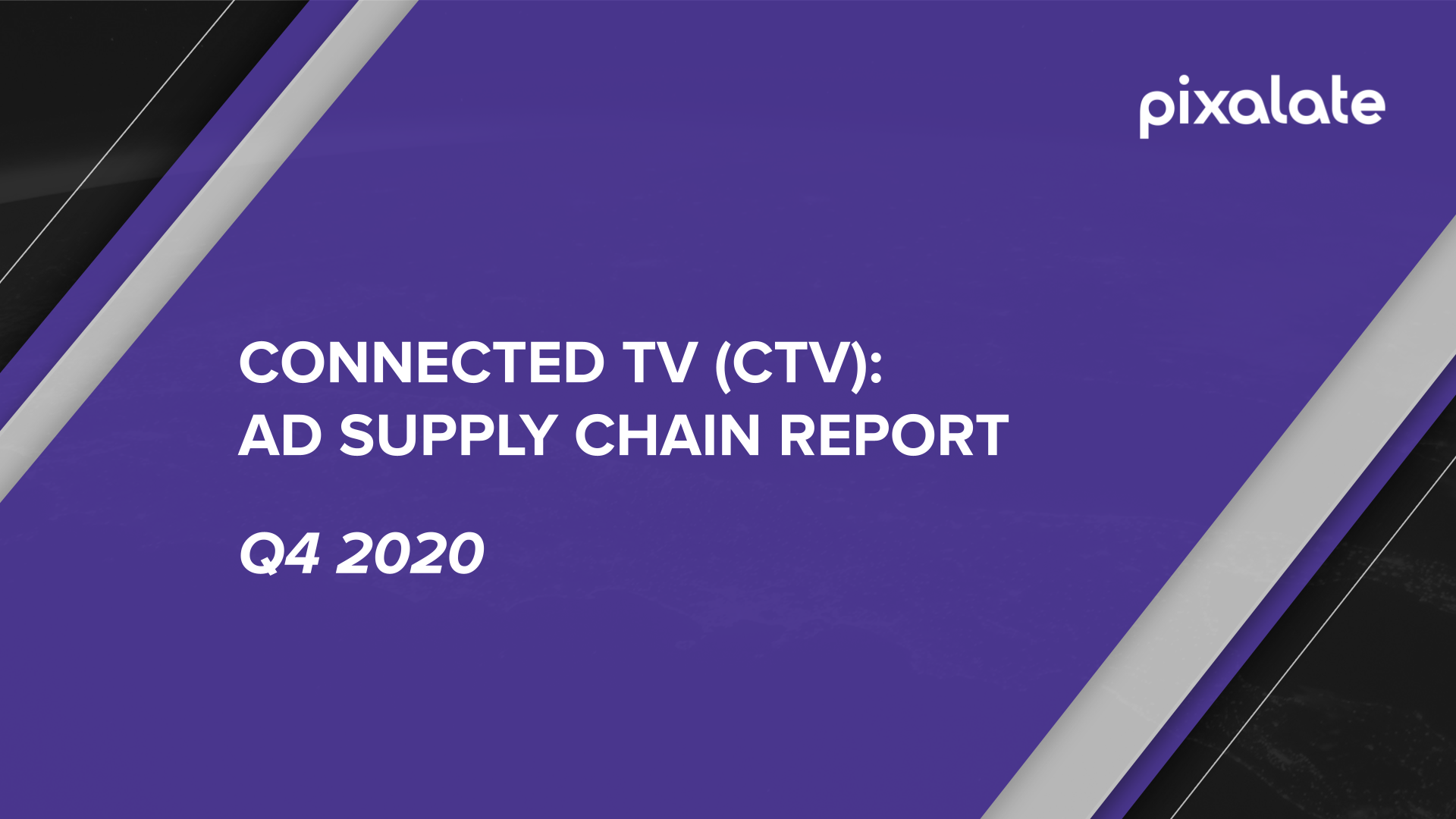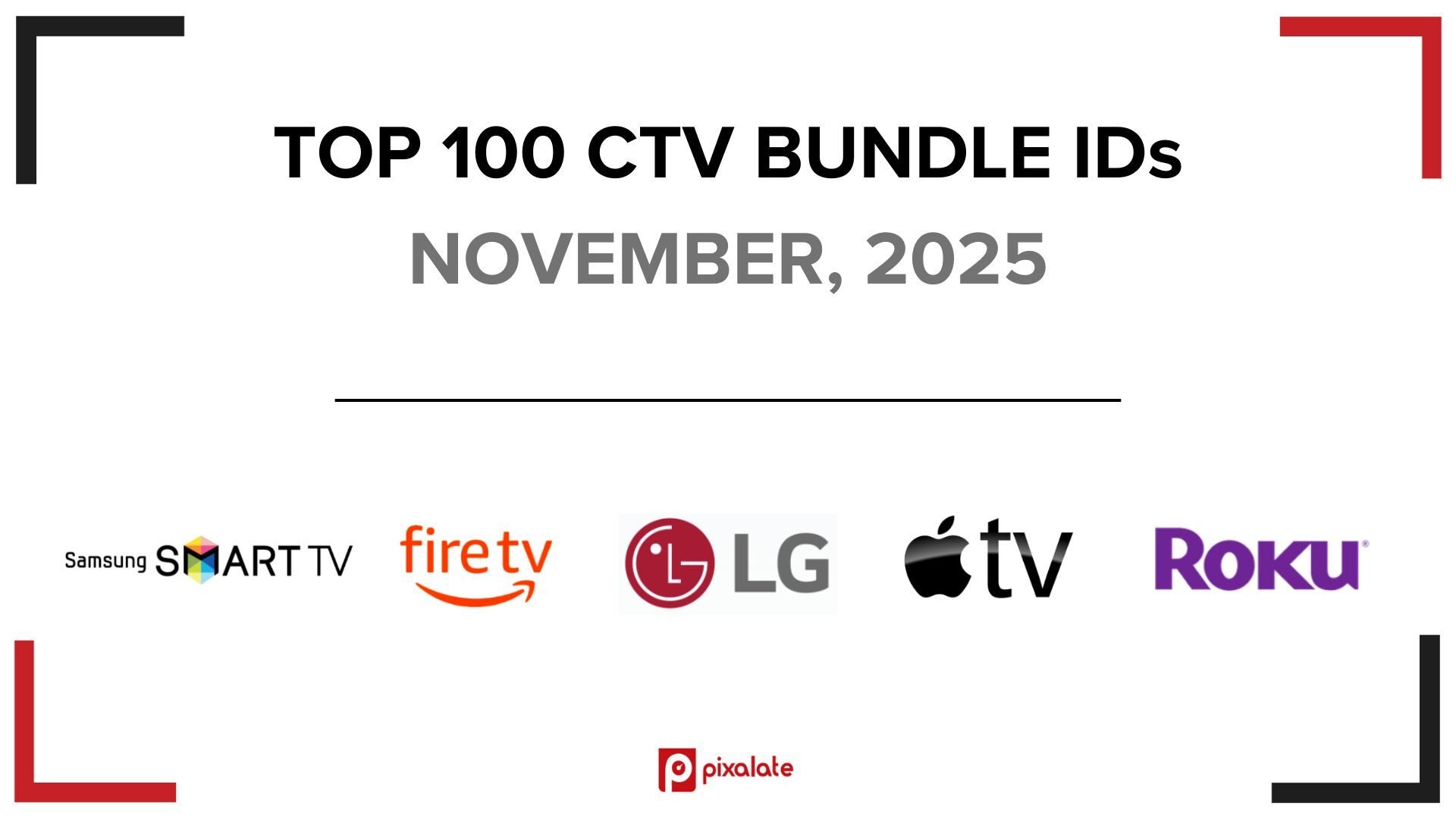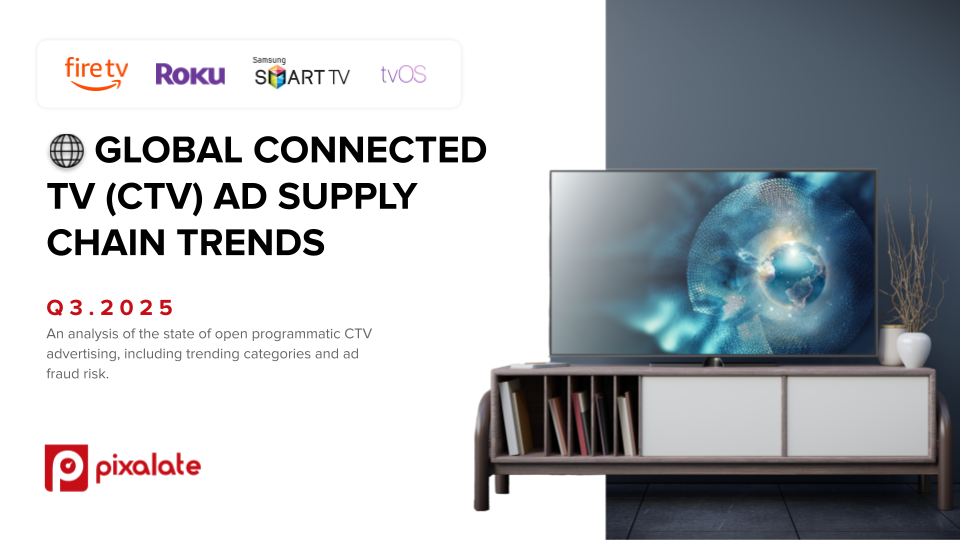Report reveals 78% of U.S. households are now reachable via programmatic CTV advertising, but ad fraud rates remain high, at 24% in Q420
PALO ALTO, Calif., March 23, 2021 -- Pixalate, a global ad fraud intelligence and marketing compliance platform, today released its Connected TV (CTV) Ad Supply Trends Report 2020, a comprehensive look at programmatic CTV advertising throughout 2020.
The report analyzes the state of programmatic CTV advertising and provides a deep dive into programmatic CTV ad spend trends by global region, ad fraud (or invalid traffic, “IVT”) in programmatic CTV advertising, and trends in the Roku and Amazon Fire TV app stores.
Key Findings:
CTV Advertising is growing at a fast rate
- 78% of US households are reachable via CTV programmatic advertising, up 56% year-over-year
- 122% increase in global programmatic ad spend in CTV over 2020
Ad Fraud (IVT) is still a significant problem in CTV
- 24% of CTV programmatic advertising was invalid traffic (IVT) in Q4 of 2020
Roku devices dominate the programmatic ad market
- 46% of programmatic ad spend in CTV went to Roku devices
- Samsung, Apple, and Amazon come in at second, each with about 10% market share
- Apple increased its ad market share by 379% from Q120 to Q420
CTV apps continue to embrace programmatic advertising
- 47% increase in Roku apps that support programmatic
- 13% increase in Amazon Fire TV apps that support programmatic
The report also looked at the top 10 apps on both the Roku and Amazon Fire TV platforms based on programmatic ad spend in Q4 2020.
What's inside the report
Pixalate's 2020 Connected TV Ad Spend Supply Trends Report includes:
- State of the CTV ad marketplace
- Programmatic ad spend in CTV by region
- CTV device trends
- App Store Insights
- Top CTV apps
- Top CTV operating systems
- Top CTV Supply-side platforms (SSPs)
Download a free copy of the report here: 2020 Connected TV Ad Spend Supply Trends Report.
About Pixalate
Pixalate, a global ad fraud intelligence and marketing compliance platform, works with brands and platforms to prevent invalid traffic and improve ad inventory quality. We offer the only system of collaborative solutions across display, app, video, and OTT/CTV to better detect and eliminate ad fraud. Pixalate is an MRC-accredited service for the detection and filtration of sophisticated invalid traffic (SIVT) across desktop and mobile web, mobile in-app, and OTT/CTV advertising. www.pixalate.com
Disclaimer
The content of this press release, and the Connected TV (CTV) Ad Supply Trends Report 2020 (the "Report"), reflect Pixalate's opinions with respect to factors that Pixalate believes can be useful to the digital media industry. Any insights shared are grounded in Pixalate's proprietary technology and analytics, which Pixalate is continuously evaluating and updating. Pixalate's datasets — which are used exclusively to derive these insights — consist predominantly of open auction programmatic traffic sources. As cited in the Report and referenced in the Report's key findings reproduced herein, programmatic ad transactions, as measured by Pixalate, are used as a proxy for ad spend. The Report examines U.S. advertising activity. Per the Media Rating Council, Inc. (MRC), "'Fraud' is not intended to represent fraud as defined in various laws, statutes and ordinances or as conventionally used in U.S. Court or other legal proceedings, but rather a custom definition strictly for advertising measurement purposes.” Also, per the MRC, "'Invalid Traffic' is defined generally as traffic that does not meet certain ad serving quality or completeness criteria, or otherwise does not represent legitimate ad traffic that should be included in measurement counts. Among the reasons why ad traffic may be deemed invalid is it is a result of non-human traffic (spiders, bots, etc.), or activity designed to produce fraudulent traffic." Any references to outside sources in the Report and herein should not be construed as endorsements. Pixalate's opinions are just that, opinions, which means that they are neither facts nor guarantees.




%20Mobile%20Apps%20Benchmarks%20Report%20-%20Q3%202025%20-%20GLOBAL.png)

